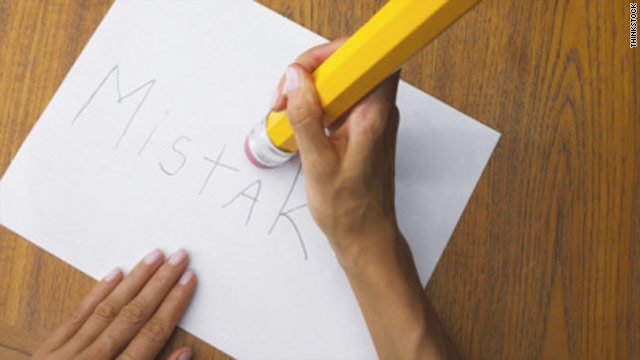
Photo credit: CNN
Making a mistake, flub, blunder, gaffe, blooper on social media is remarkably easy. A brief remark, which may have seemed innocuous at the time, can easily anger some people. Sophomoric humor, culturally insensitive remarks, sexually inappropriate innuendo and comments touching on politics or religion can all cause controversies. Sometimes, people take offense even when you can’t see that you did anything wrong.
Likelihood of mistakes increases as social media marketers and PR personnel generate increased amounts of content, sometimes for multiple clients. Making the issue worse, social media users can share a rogue post or tweet with others, causing it to spread virally around the world.
Social media gaffes need to be fixed. These are some tips on how to handle a social media mishap.
Take responsibility. Acknowledging the situation rather than denying it or making excuses will gain more respect. Admitting the mistake and apologizing is more likely to slow criticism. Don’t delete or ignore negative comments. Better to apologize even if you haven’t done anything wrong. In customer service, “a simple acknowledgement of a problem can prevent a potential PR nightmare — and often makes the customer so happy, the company gets a PR boost instead,” said Gloria Rand, an SEO copywriter and social media consultant, in a CIO.com article.
Respond quickly. Responding slowing or not responding at all increases chances for online criticism. Try setting hours for when company staff is available to answer questions on particular networks and quickly answer questions and comments.
Use humor. Injecting humor can be appropriate for smaller errors, but is best avoided for mistakes involving religion or other sensitive issues. Use of humor as a smoothing tactic depends on your brand’s image. Red Cross showed how to employ humor in response to criticism after its social media director tweeted about drinking Dogfish Head beer, thinking she was posting to her personal account.
Benefit from it. It’s possible to turn a social media mistake to your benefit. In the Red Cross example, Dogfish Head asked followers to donate to the Red Cross, with the hashtag #gettngslizzerd. Red Cross in turn amplified the request by retweeting it.
Don’t claim you were hacked. That’s the online equivalent of “the dog ate homework,” says social media specialist Alexandrea Roman at Azeus Convene. People will realize it’s not true and feel insulted.
Remain calm. Responding negatively to a negative attack will attract attention and exacerbate the situation. “It’s important to keep your cool and stay professional, even in response to an unfounded and highly personal attack,” says Aaron Hollobaugh, vice president of sales and marketing at Hostway Corporation.
Move on. Dwelling on it won’t improve the situation. Chances are that it was not as bad as it seems. Most people will probably soon forget. Instead, try to learn from the incident.
“Social media is a lightning fast arena, and certainly not for the faint of heart. With multiple channels, devices, clients, and voices to monitor, even your hardest of hardcore professionals can make a mistake once in a while,” writes Dan Taylor for TNW News. “But if humanizing a company or brand is what we’re after, don’t we have to take the good with the bad?”
Preventing Mistakes
Of course, the best strategy for fixing mistakes to prevent them from happening in the first place. That entails thorough training of social media employees and managers on acceptable practices before granting them posting privileges, avoiding the hiring of neophytes to create social media posts, and developing a social media policy to provide written guidance to employees and contractors.
In addition, continually monitoring social media enables brands to swiftly determine how customers are reacting to their activities and to identify any possible faux pas.
Bottom Line: Even the best marketing and PR professionals are not immune from making mistakes on social media. It’s important to take responsibility for the error, act professionally, remain calm and avoid excuses. In some instances, marketers can use humor to improve the situation and even attempt to benefit from the error.
William J. Comcowich founded and served as CEO of CyberAlert LLC, the predecessor of Glean.info. He is currently serving as Interim CEO and member of the Board of Directors. Glean.info provides customized media monitoring, media measurement and analytics solutions across all types of traditional and social media.





Great Post and Nice Article.I had never know about this….I like it.Thanks for Sharing.